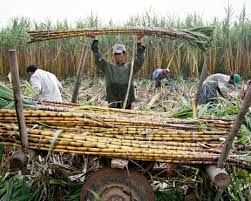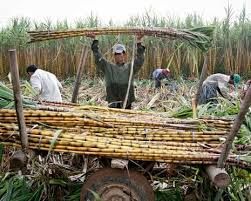South Africa's sugar farmers hit by US tariffs and cheap imports

South African sugar farmers are facing mounting pressure from both international tariffs and low-cost imports, forcing some to make difficult decisions about staffing and production. For many small-scale producers, the combination of these challenges threatens livelihoods and local employment. A worker inspects harvested sugarcane at Nkosinathi Msweli's farm in KwaDukuza, a rural region on South Africa's eastern coast, August 26, 2025.
Msweli says he will cut about 20 workers this season due to cheap imports and U.S. tariffs creating a "double whammy" for his operation. REUTERS/Sisipho SkweyiyaNkosinathi Msweli’s sugar cane farm in KwaDukuza, a rural region on South Africa's eastern coast, has been a stable, small-scale success for three decades, employing eight full-time staff and 30 seasonal workers.But cheap sugar imports were already cutting into his earnings when U.S. President Donald Trump imposed a 30% tariff on South African sugar exports, creating what Msweli calls a "double whammy."
"All in all, I will have to cut about 20 workers from this current season," he told Reuters. "The person that is here in the field maybe has 10 lives that he's supporting."
Market challenges
South Africa’s sugar industry is valued at roughly R25bn ($1.42bn) and supports over 300,000 jobs directly and indirectly. Yet the sector is struggling to compete with low-cost imports from neighbours like Eswatini, which benefit from preferential trade access, and with global oversupply from countries including India and Brazil.
Trump’s tariffs hit South Africa’s exports to the U.S., which had previously benefited from a duty-free quota of 24,000 metric tonnes under the African Growth and Opportunities Act. While this represents only around 5% of total exports, the U.S. market has historically offered higher prices and supported domestic employment.
